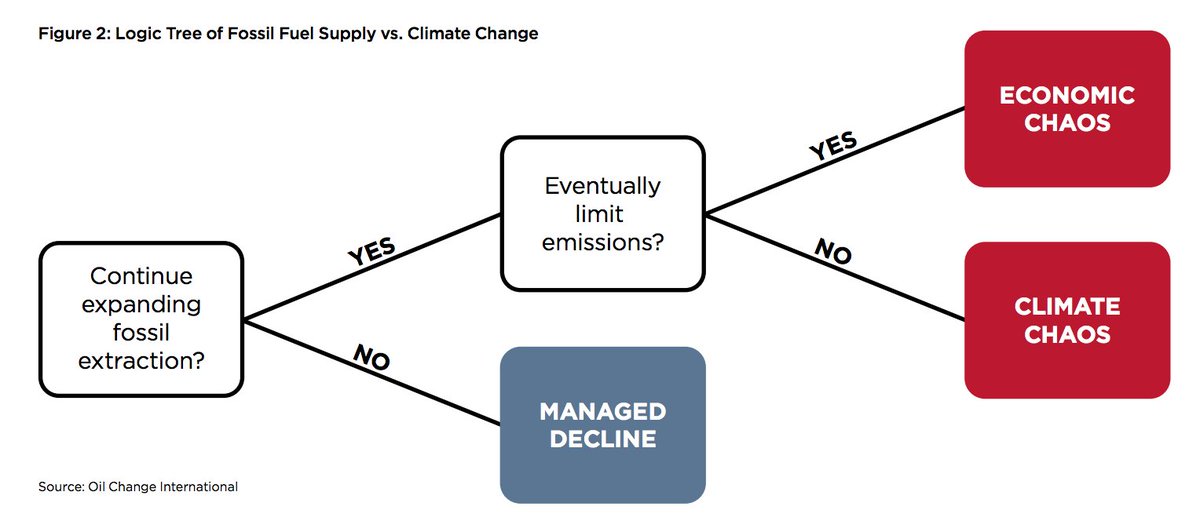
🧵 Thread time:
Today we launched energyfinance.org ⚡ tracking G20 international public finance flows to fossil fuels vs. clean energy - over 14,000 transactions over a decade.
[1/16] So now let's get into why these public finance flows matter. bit.ly/3OrHf68
Today we launched energyfinance.org ⚡ tracking G20 international public finance flows to fossil fuels vs. clean energy - over 14,000 transactions over a decade.
[1/16] So now let's get into why these public finance flows matter. bit.ly/3OrHf68

[2/16] Public finance shapes our future energy systems. All public finance institutions’ investments together total $2.2 trillion a year with a double-down impact of influencing decisions of private financiers - tipping the ⚖️ on which projects get built, and which don't.
[3/16] The science says we need to #StopFundingFossils NOW & a just transition to clean energy to avoid the worst impacts of climate change. But energyfinance.org shows G20 public finance remains skewed towards fossil fuels 🔥 while support for clean energy has stagnated. 

[4/16] G20 public finance institutions put 2.5X more 💵 into fossil fuels vs clean energy from 2018-2020. That’s $63billion/ year going into coal, oil & gas projects - fossil fuel support risking our ability to secure a livable future according to @IPCC_CH bit.ly/3uY3Z63 

[5/16] Some other key points 📈
1. 🇨🇦 🇯🇵 🇰🇷 🇨🇳 are the largest providers of public finance for fossil fuels
2. Fossil gas receives more 💰 than any other energy source 🚩
3. G20 international public finance for fossil fuels nearly outweighs all countries’ climate finance 💸
1. 🇨🇦 🇯🇵 🇰🇷 🇨🇳 are the largest providers of public finance for fossil fuels
2. Fossil gas receives more 💰 than any other energy source 🚩
3. G20 international public finance for fossil fuels nearly outweighs all countries’ climate finance 💸
[6/16]
4. Most international public finance flows from wealthy countries ➡️ other wealthy countries
5. Fossil fuel finance locks out just development & adds to debt burdens in the Global South.
6. Putin’s war is subsidized through int’l public finance for fossil fuels.
4. Most international public finance flows from wealthy countries ➡️ other wealthy countries
5. Fossil fuel finance locks out just development & adds to debt burdens in the Global South.
6. Putin’s war is subsidized through int’l public finance for fossil fuels.
[7/16] The GOOD news: public finance can build a just transition instead. The #IPCC says energy efficiency & renewables can rapidly replace fossil fuels this decade, provide cheaper sources of electricity in most regions, AND bring development benefits.
energyfinance.org
energyfinance.org
[8/16] Investing in a just transition that leaves no one behind means: clean & efficient energy systems, sustainable agriculture, cities that work for people, climate adaptation, a strong public care economy and many sustainable jobs 🫂.
energyfinance.org
energyfinance.org
[9/16] The first step: Public finance institutions must stop 👏 funding 👏 fossil 👏 fuels 👏
And this year, the balance CAN tip in favor of clean energy. That is, if governments follow through on their commitments.
energyfinance.org
And this year, the balance CAN tip in favor of clean energy. That is, if governments follow through on their commitments.
energyfinance.org
[10/16] At @COP26 39 countries + institutions committed to #StopFundingFossils & prioritize public finance for clean energy. Now these Glasgow Statement signatories need to turn commitments into reality - and others need to join them! *hint* Japan @G7 👀 energyfinance.org 

[11/16] This is also the only effective response to compounding debt, climate, & fossils price crises. We need to use public finance strategically & equitably for energy efficiency & renewable energy to phase out volatile & conflict-fueling fossil fuels. bit.ly/3OrHf68
[12/16] Ending public finance for fossil fuels will free up billions every year to support a just energy transition - but it won’t be enough. Wealthy G20 governments must also provide their fair share of debt cancellation, climate finance, and reparations for loss and damage.
[13/16] Wealthy countries' historic responsibility for climate, colonialism & extraction means their 'fair share' is AT LEAST:
💸$2 trillion/ year ➡️ mitigation & adaptation
💸$300 billion/ year ➡️ loss & damage
💸$100 billion/ year ➡️ debt cancellation
bit.ly/3OrHf68
💸$2 trillion/ year ➡️ mitigation & adaptation
💸$300 billion/ year ➡️ loss & damage
💸$100 billion/ year ➡️ debt cancellation
bit.ly/3OrHf68
[14/16] If held accountable to their public-interest mandates, public banks are uniquely positioned to catalyze a just transition. The first step is for these institutions to keep their promises to #StopFundingFossils 🔥 So, let's hold them accountable. energyfinance.org
[15/16] Are you a researcher or journalist and do you want to know more about the Public Finance for Energy Database (energyfinance.org)? This Friday at 3PM UK time we're organizing a media briefing. Send us a DM if you want to receive an invitation! 

[16/16] We invite YOU to use the Public Finance for Energy Database to ensure governments make public finance work for a livable future 🌍 Download our briefing and start exploring the data 👉 bit.ly/3OrHf68
• • •
Missing some Tweet in this thread? You can try to
force a refresh




